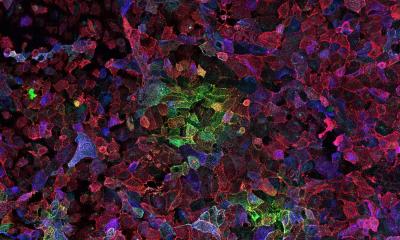
Image source: Adobe Stock/New Africa
News • Impaired immune response
Research identifies being overweight as risk factor for Covid-19 severity
University of Queensland-led research shows being overweight can impair the body’s antibody response to Sars-CoV-2 infection but not to the protection offered by vaccination.
Research lead, School of Chemistry and Molecular Biosciences PhD candidate Marcus Tong, said the finding built on the team’s existing research on how Covid-19 affects people who are overweight. “We’ve previously shown that being overweight – not just being obese – increases the severity of Sars-CoV-2,” Mr Tong said. “But this work shows that being overweight creates an impaired antibody response to Sars-CoV-2 infection but not to vaccination.”
The new research is published in Clinical & Translational Immunology.
If infection is associated with an increased risk of severe disease and an impaired immune response for the overweight, this group has a potentially increased risk of reinfection
Kirsty Short
The research team collected blood samples from people who had recovered from Covid-19 and not been reinfected during the study period, approximately 3 months and 13 months post-infection. “At 3 months post-infection, an elevated BMI was associated with reduced antibody levels,” Mr Tong said. “And at 13 months post-infection, an elevated BMI was associated with both reduced antibody activity and a reduced percentage of the relevant B cells, a type of cell that helps build these Covid-fighting antibodies.”
In contrast, an elevated BMI had no effect on the antibody response to Covid-19 vaccination at approximately 6 months after the second vaccine was administered.
Associate Professor Kirsty Short said the results should help shape health policy moving forward. “If infection is associated with an increased risk of severe disease and an impaired immune response for the overweight, this group has a potentially increased risk of reinfection,” Dr Short said. “It makes it more important than ever for this group to ensure they’re vaccinated.”
Dr Short said from a public health perspective, this data draws into question policies around boosters and lockdowns. “We’d suggest that more personalised recommendations are needed for overweight people, both for ongoing Covid-19 management and future pandemics,” she said. “Finally, the data provides an added impetus to improve Sars-CoV-2 vaccination in low-income countries, where there’s a high percentage of people who are overweight and are dependent on infection-induced immunity.”
Source: University of Queensland
04.12.2023











